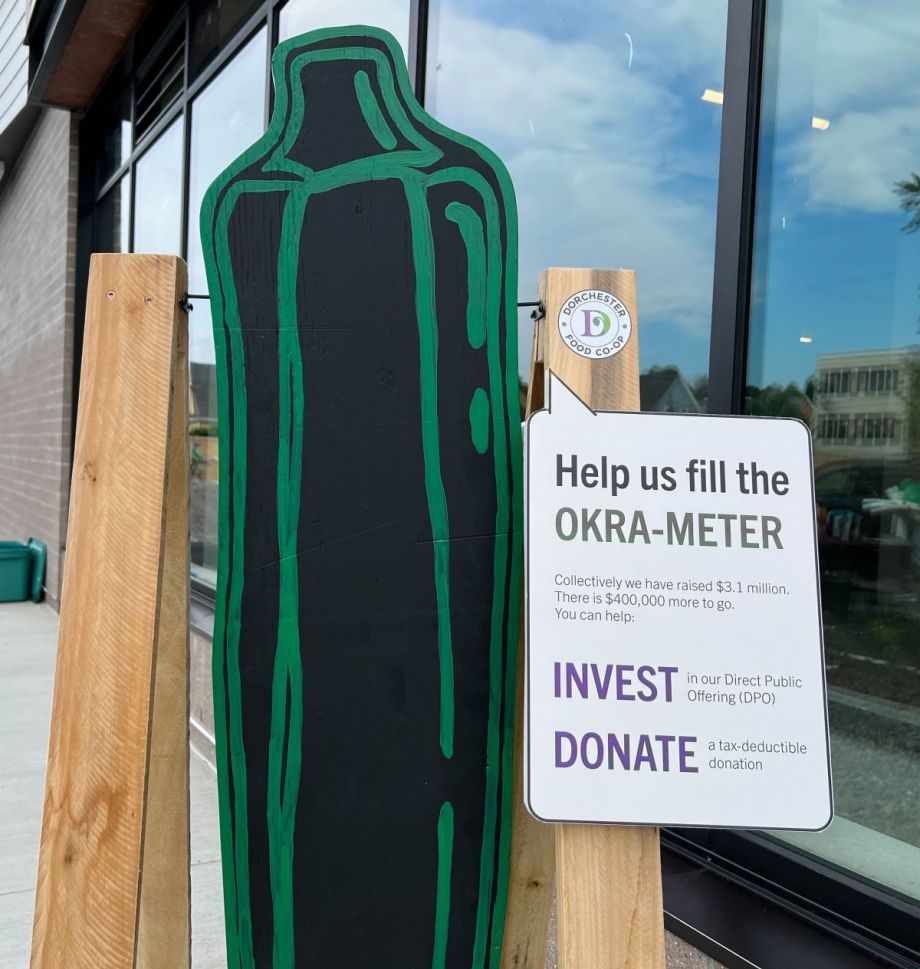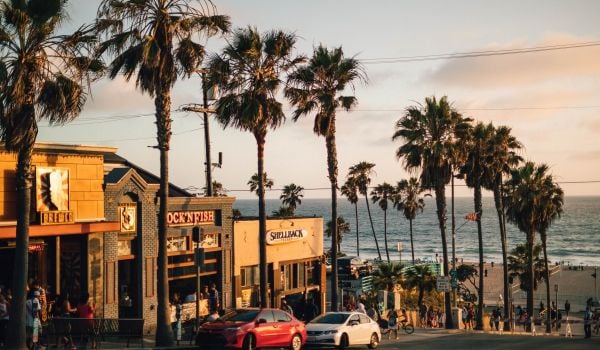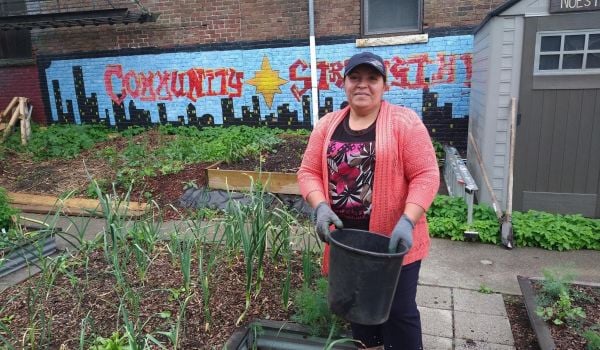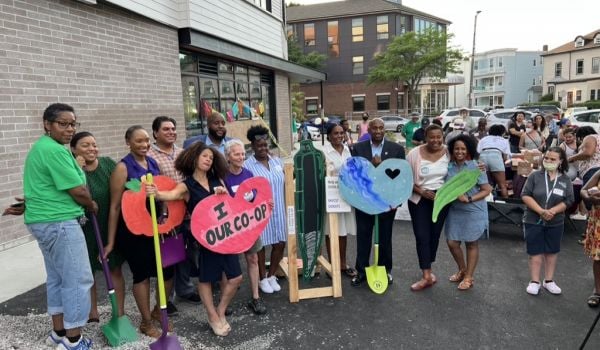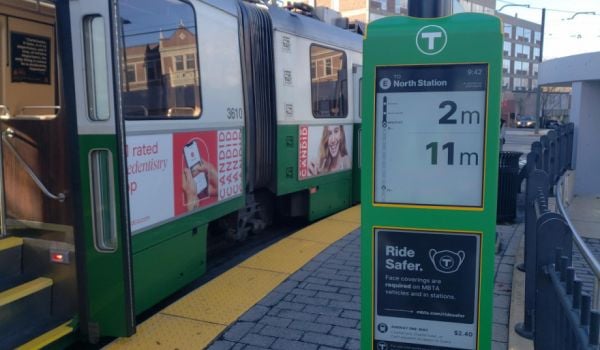When Deborah Frieze goes out in search of new investors for the Boston Impact Initiative Fund, her pitch starts out with some pretty lofty goals, but then it goes a few degrees beyond some of the loftiest-sounding investment funds out there.
The closest conventional models for Frieze’s fund are private equity funds, venture capital funds or hedge funds, all of which pool dollars from multiple investors and then turn around to build a portfolio of multiple investments according to some particular strategy.
As stated in the its disclosure documents for investors, Frieze’s fund has a strategy of investing in “local enterprises that improve the productive capacity of communities of color in Eastern Massachusetts,” and it is “dedicated to pursuing economic justice, promoting social welfare and combating community deterioration by encouraging and facilitating investment in opportunity for all – especially those most oppressed or abandoned under the current economic system.”
But there actually are plenty of other community development loan funds, as well as credit unions, banks and even some venture funds all around the country that have some kind of mission to make loans and investments in historically marginalized or underinvested communities.
Frieze’s pitch takes things a few degrees further when she gets to the part where she explains that her fund’s board of directors, which makes all final investment decisions, combines investment professionals with community organizers working in Boston’s historically marginalized communities. It goes even further when she gets to the part where she says the fund is open to investors from those communities, and if the fund goes bankrupt, the community investors will get partially refunded before any outside investors. Usually the bigger investors are first in line.
Despite the fund’s unconventional model — or in some cases because of it — there’s been enough interest from investors that Frieze recently had to start turning some of them away, at least temporarily. “We’ve raised faster than we’ve deployed,” Frieze says. “So we’ve actually just put a pause on our fundraising with the exception of community notes, which will stay open.”
In time, Frieze hopes she’ll be able to direct some of those investors to similarly structured funds working in historically marginalized communities across the country, including places as far-flung from Boston as the Hmong refugee community in Minnesota or native women-led business networks in New Mexico and elsewhere. The Boston Impact Initiative (BII) recently announced members of both of those communities will be part of its new BII Fund-Building Cohort, an 18-month program bringing together teams from twelve sites across the country to learn from each other and from BII how to build and run an investment fund that works hand-in-hand with community organizers to bridge racial and gender wealth gaps.
“We have a really strong idea of where we can put this investment,” says Vanessa Roanhorse, a member of the cohort and founder of Roanhorse Consulting, based in Albuquerque. “What we’re trying to figure out is what kind of investment structures make the most sense to get these indigenous women entrepreneurs to where they’re trying to go.”
Since inception in 2013, BII has loaned, invested or granted money to 60 enterprises. Its portfolio companies include businesses like Democracy Brewing, a worker-owned microbrewery in downtown Boston; Maven Construction, a woman- and minority-owned general contracting firm; or Fresh Food Generation, a food truck, cafe and catering company serving locally-sourced foods, based in Boston’s predominantly-black Dorchester neighborhood.
In one particularly illustrative example of how it works, BII provides grant support to City Life/Vida Urbana (which holds a seat on its board), which helps organize the Coalition for Occupied Homes in Foreclosure, or COHIF. In turn, COHIF borrows funds from BII to acquire homes in foreclosure and lease them back to the families already occupying them at rents they can afford (see Next City’s earlier coverage of COHIF).
It took a hefty amount of legal work to come up with legal documents that would allow BII to operate in that way — about two years and 30 pro-bono lawyers of work, to be more precise, according to Frieze. Those documents have allowed BII to raise $6.9 million from 119 investors so far, and will now be central to BII’s Fund-Building Cohort.
BII’s pro-bono lawyers initially directed the group to their firm’s private equity division. “We started conversations with them and I was like, ‘No no no, this is not the kind of fund that I want to do,’” Frieze says.
From Frieze’s perspective, a private equity fund wouldn’t work as a legal structure because it’s geared toward wealthy investors — those who meet the definition of “accredited investor” under the Securities Act of 1933. With certain exceptions, current federal regulations generally define an accredited investor as someone with a net worth of at least $1 million or an annual income of at $200,000 for the past two years.
“Here we are talking about closing the racial wealth divide,” Frieze says. “Imagine if all of our investors were all accredited investors who are making money off of entrepreneurs from low-income working class communities of color. Something’s not right about that.”
Frieze wanted a model that would be open to non-wealthy investors, and also wanted the flexibility to have wealthy investors bear more of the risk by putting non-wealthy investors first in line to get some of their money back in case the fund goes bankrupt. The fund also needed the flexibility to make grants as well as investments.
The Boston Impact Initiative ultimately filed an application with the Internal Revenue Service to form a charitable loan fund, with a minimum investment of $2,000. Frieze cites earlier models as a basis for their IRS application, particularly the Pioneer Valley Grows Investment Fund. Most community development loan funds are also registered as charitable loan funds.
But that wasn’t the end of the legal journey. In order to raise capital from private investors, including community investors, BII needed help from lawyers to craft an offering memorandum — a long document with lots of legalese and disclaimers outlining the terms and risks of investing in the fund, as well as the different investment options for non-wealthy investors and wealthy investors. It also describes the fund’s investment strategy, governance structure, and leadership. There’s also a plan for what happens if the fund goes bankrupt.
BII’s essential legal documents also include its loan and investment agreements for its portfolio enterprises. It’s become standard for BII to include “impact covenants” as part of its investments. For example, if a company decreases the compensation ratio of the highest versus the lowest paid employee, or if it implements a plan to convert to employee ownership, BII might decrease the interest rate on its loan by half a percent. If the highest-lowest compensation ratio increases, it might increase the interest rate by half a percent.
Frieze says there’s about seven or eight impact covenant “buckets” BII has across its investment portfolio. Each investment includes just one or two covenants, and BII lets each company choose which ones make sense.
BII already makes its IRS application documents, offering memorandum and loan agreements available to anyone who might want to use them as a template. As more and more organizations started contacting Frieze to ask about them, she realized a cohort model would be more efficient.
“No one should ever have to [create those documents from scratch] again,” Frieze says.
The BII Fund-Building Cohort will have three in-person gatherings in Boston as well as online webinars and one-on-one support from BII over the next 18 months to figure out how to build their own investment funds with BII’s legal documents as a template.
“I think the opportunity with this cohort is to explore other types of capital and other ways that organizations have packaged deals for their community,” says Mai Moua, another member of the BII Fund-Building Cohort and chief operating officer at the Hmong American Partnership.
In its hometown, BII has already hatched a replication of its model — the Boston Ujima Project, which took BII’s legal documents, tweaked them to fit the particular challenges of a democratically-run investment fund, and launched it last year, raising $1.3 million from investors in 2019 and making its first investment in December. Some of Ujima’s investors came from the same investor networks that were investing into BII.
“We deliberately built relationships with a number of registered investment advisers and donor-advised funds, because those are intermediaries that bring us multiple [investors],” Frieze says. “We want those relationships to be transferable to these other funds as they develop. A lot of these [networks] are national, and they’re investing in Boston because it’s the only racial justice product out there.”
Those networks are not just national, they are substantial. Registered investment advisors collectively manage $83.7 trillion in assets on behalf of their clients, and, while under fire as of late for serving as a tax shelter for the wealthy, donor-advised funds hold another $121.42 billion.
The BII Fund-Building Cohort members are at various stages of readiness to take in some of those private investor dollars. The Hmong American Partnership, for example, celebrates its 30th anniversary this year. It already has a bus transportation company with 70 drivers and $5 million in revenue a year, mostly from contracts with three Hmong charter schools in the Twin Cities. It also owns Tapestry Restaurant, located on the first floor of its own building, which doubles as a hospitality industry training program. A few years ago, it started a staffing agency to turn its workforce development and job placement program into a revenue-generating company with more than 100 employee placement partners, from small mom-and-pop shops to Fortune 500 companies. In 2016, it created a small business revolving loan fund that currently has a $1.5 million portfolio.
But the Hmong American Partnership has primarily combined public dollars at the federal or local level along with earned revenues from their own businesses. Moua says they are eager to try their hand at raising private investor dollars using BII’s model.
“We’ve never done this kind of loan fund or investment fund before,” says Moua. “We’re really hoping through this funding cohort we would learn to refine our key messages and pitch to future investors and partners for what we are trying to do.”
Meanwhile in Albuquerque, Roanhorse and her team are busy planning the next Native Women’s Business Summit. They’ve done two annual summits so far. Her colleague Jamie Gloshay is also part of the BII Fund-Building Cohort, and also co-founded Native Women Lead, which organizes the summits. Both have had previous experience supporting businesses led by historically marginalized groups. Roanhorse Consulting is also responsible for designing and managing the Co-Op Capital pilot project in partnership with a local credit union. But they’re hoping the cohort experience will help them build their own new fund as well as gain knowledge about fund-building to share with other native-led groups across the country.
“Long term, from our perspective,” Roanhorse says, “we want to make sure that no matter what happens with whatever fund we’re able to create, that we’re also working with our other native-led partners across the country who are also looking to create some kind of creative ways to receive capital and who are raising capital so we can constantly ensure money that is trying to get into native country through specifically native-led initiatives.”
This article is part of The Bottom Line, a series exploring scalable solutions for problems related to affordability, inclusive economic growth and access to capital. Click here to subscribe to our Bottom Line newsletter.

Oscar is Next City's senior economic justice correspondent. He previously served as Next City’s editor from 2018-2019, and was a Next City Equitable Cities Fellow from 2015-2016. Since 2011, Oscar has covered community development finance, community banking, impact investing, economic development, housing and more for media outlets such as Shelterforce, B Magazine, Impact Alpha and Fast Company.
Follow Oscar .(JavaScript must be enabled to view this email address)



